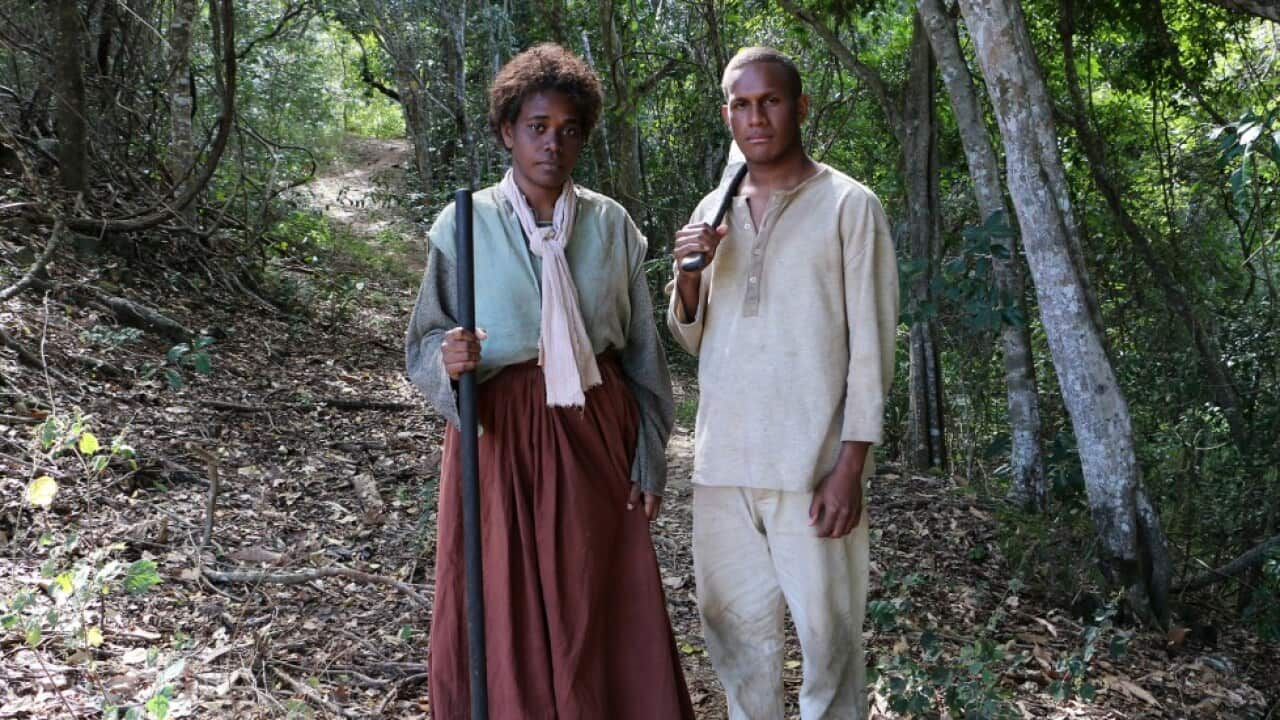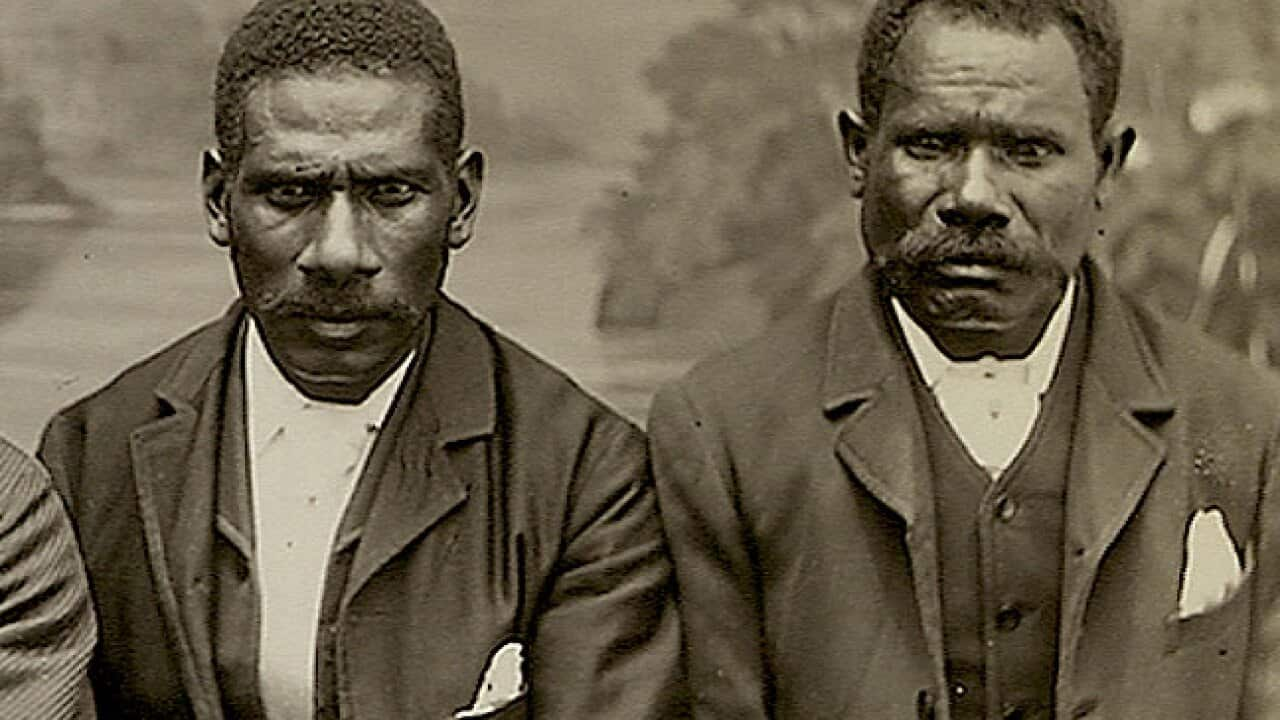What is Blackbirding?
How much do you know about slavery in Australia?
While we might know about the ; Aboriginal stockmen, and other labourers working difficult, sometimes dire, conditions, having their wages withheld under the Aborigines Protection Act, the history of kidnapping foreigners for the purposes of indentured services, is another part of Australia's dark history of white masters and black servants.
Known as the practice of '', an estimated 60,000 South Sea Islanders were brought to Australia between 1863 and 1904 to work on sugarcane and cotton farms in Queensland and Northern NSW. While there is of people coming to Australia willingly, by large the practice involved manipulative luring and in some cases blatantly forcibly removing of men and their families from their homes in Vanuatu, the Solomon Islands, Papua New Guinea and other neighbouring islands.
While these workers were paid, their wages were significantly lower than that of European workers. Many were prohibited from speaking their mother tongue and they were brought into a society which segregated blacks and whites like racial segregation in the US. Their overseas location made it near impossible for them to leave, if such was the decision, and as such the Islanders were forced into slave like conditions in their new 'jobs' in Australia.
In 1994, the Federal Government formally recognised Australian South Sea Islanders as a distinct community with a unique and significant contribution to the economic and cultural development of Australia, marking 25 August .
A filmmaker's personal story
Australian Solomon Islander filmmaker is shining a light on the dark and little-known part of Australian history with her film, 'Blackbird'.
The award-winning film is the culmination of a long personal journey for Batalibasi, with three of the her own ancestors being blackbirded from the Solomon Islands in the late-1800s.
Inspired by her family's history, Blackbird stands to acknowledge the tens of thousands of Pacific Islanders who were taken from their homes to work on Australia's sugar and cotton plantations.
Set in the late-1800s, the film tells the story of Solomon Islander siblings, Rosa (Regina Lepping) and Kiko (Jeremy Bobby), who were kidnapped from their island home to work on a sugarcane plantation in Queensland.
Rosa struggles to keep an eye on her young spirited brother who comes into conflict with their Overseer. Kiko journeys into adulthood, amidst oppression and severe loss of culture and identity, he must find his will to survive. The film has been screened at a number of including, Maoriland Film Festival in New Zealand, imagineNATIVE Film Festival in Canada, Skábmagovat Film Festival, in Finland, WINDA Film Festival in Sydney, taking home such as Best Drama Film (Sydney Indie Film Festival), People's Choice Award for Best Short (Maoriland Film Festival), 'Best of the Fest Award' (Pasifika Film Festival, Sydney & Brisbane).
The film has been screened at a number of including, Maoriland Film Festival in New Zealand, imagineNATIVE Film Festival in Canada, Skábmagovat Film Festival, in Finland, WINDA Film Festival in Sydney, taking home such as Best Drama Film (Sydney Indie Film Festival), People's Choice Award for Best Short (Maoriland Film Festival), 'Best of the Fest Award' (Pasifika Film Festival, Sydney & Brisbane). Amie is currently developing the feature adaptation of Blackbird as the recipient through the Native and Indigenous Film Program.
Amie is currently developing the feature adaptation of Blackbird as the recipient through the Native and Indigenous Film Program.

Regina Lepping won Best Female Lead at the Sydney Indie Film Festival for her role as Rosa in 'Blackbird' Source: Facebook / Blackbird Film Project

Archival Image: ‘Group of South Sea Islanders Cairns 1890’ Source: State Library of Queensland Source: Archival Image: ‘Group of South Sea Islanders Cairns 1890’ Source: State Library of Queensland
Blackbird will have its television world premiere on NITV tonight, 13 October at 8.30pm and become available On Demand











